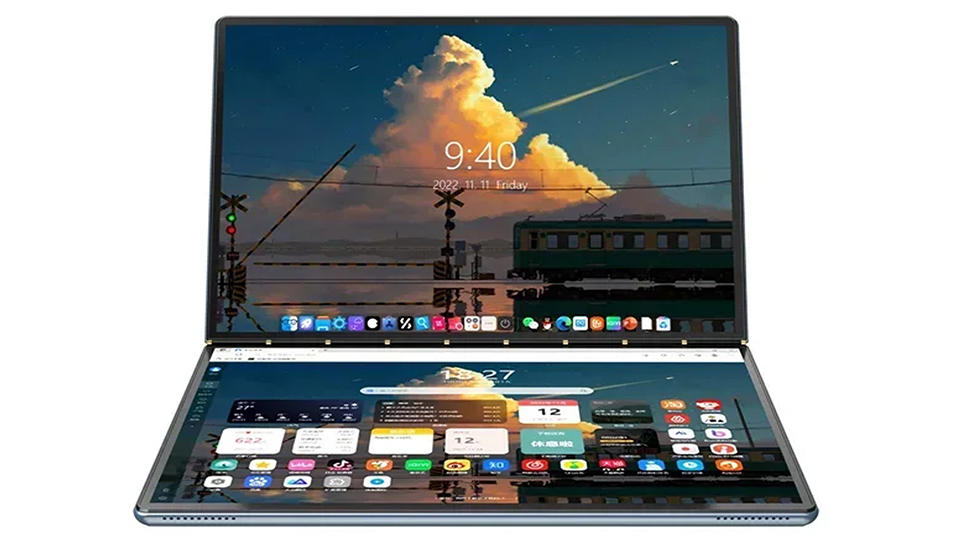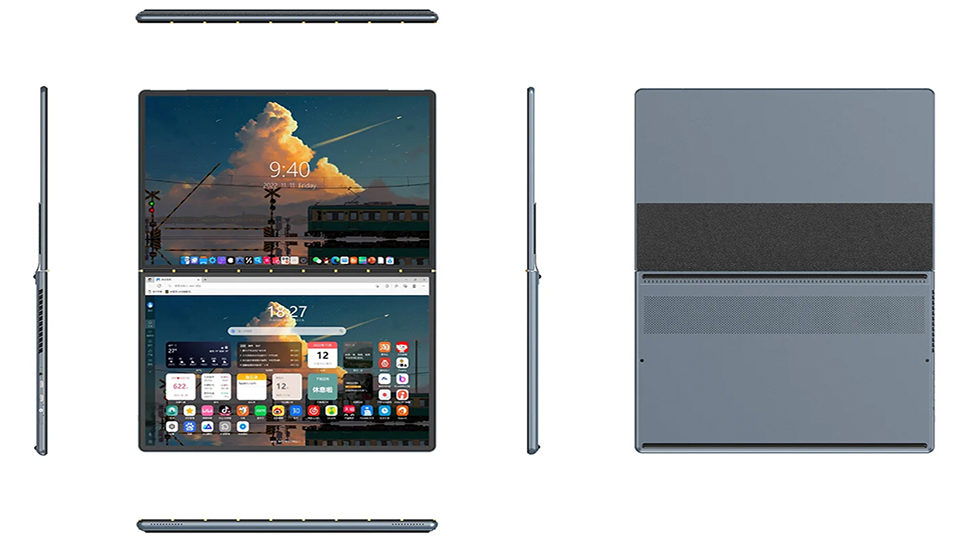Cheapest ever dual screen laptop appears online and looks a lot like a Lenovo Yoga – shame it uses an underpowered CPU and cut-down internal storage
It looks the part, and it won't break the bank – but compromises have inevitably been made

Sign up for breaking news, reviews, opinion, top tech deals, and more.
You are now subscribed
Your newsletter sign-up was successful
If you're a fan of Lenovo's dual-screen Yoga Book 9i laptop, like we are, but find the $2000 price tag a bit too steep, Chinese company SZBOX has an alternative for you.
The SZBOX DS135D is a much more affordable copy of the Yoga Book 9i, priced from just $699. This Chinese laptop comes with two 13.5-inch displays, 16GB of LPDDR4 RAM, and a 128GB PCIe 4.0 NVMe SSD. There are also upgrade options for the SSD, so if you need more storage, you can choose from 256GB, 512GB, 1TB, or 2TB. The top-tier SSD bumps the price up to just $809.
The laptop features two USB Type-C ports, a headphone jack, and a DC power input jack, but where the DS135D differs from traditional laptops, as you can see from the photos, is its dual-screen setup. The lower screen can serve as a virtual keyboard, using touch or pen input, or simply be used as extra screen space.
Inevitable compromises
Given the price difference between the two laptops, there have inevitably been some compromises made in SZBox’s version. The SZBOX DS135D replaces the powerful Intel Raptor Lake-U processor found in the Yoga Book 9i with a lower-spec Intel Alder Lake- N100 quad-core processor.
From the photos and video we've seen, it appears that the SZBOX model only has a 180-degree hinge, not a 360-degree one, which would allow the screens to be folded back-to-back.

The starting price for Lenovo's laptop also includes a Bluetooth keyboard and digital pen, while the DS135D does not. You won't receive the same level of customer support or service as you would from Lenovo either.
Currently, the DS135D is only available to buy through AliExpress, where it's being offered by various sellers.
Sign up to the TechRadar Pro newsletter to get all the top news, opinion, features and guidance your business needs to succeed!
More from TechRadar Pro

Wayne Williams is a freelancer writing news for TechRadar Pro. He has been writing about computers, technology, and the web for 30 years. In that time he wrote for most of the UK’s PC magazines, and launched, edited and published a number of them too.